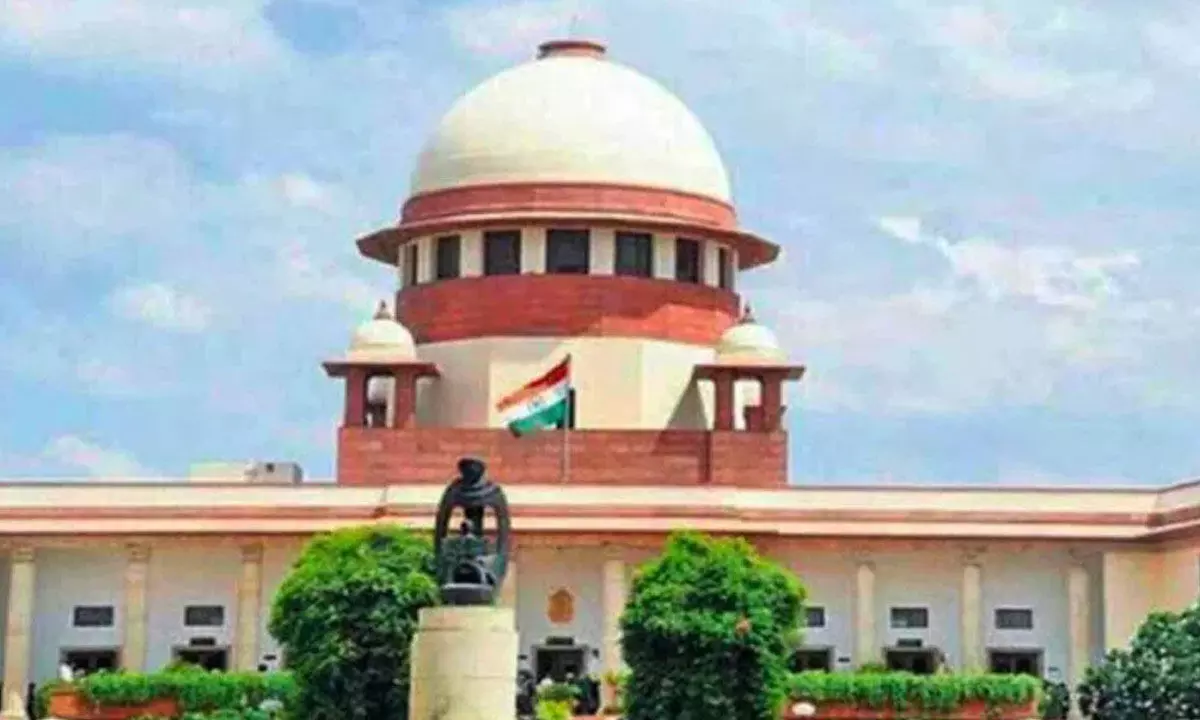Live
- They always want me to win, and now I feel lucky to have been offered a story like ‘Zebra’: Satyadev Kancharana
- ‘Democracy first, humanity first’: PM Modi in Guyana's parliament on two countries' similarities
- PKL Season 11: Telugu Titans register third straight win to top standings
- Is Pollution Contributing to Your COPD?
- NASA Unveils Underwater Robots for Exploring Jupiter's Moons
- Additional Central forces arrive in violence-hit Manipur
- AR Rahman and Saira Banu’s Divorce: Legal Insights into Common Issues in Bollywood Marriages
- 82.7 pc work completed in HPCL Rajasthan Refinery area: official
- Curfew relaxation extended in 5 Manipur districts on Friday
- Tab scam prompts Bengal govt to adopt caution over fund disbursement
Just In

- SC states that it would violate the Right To Privacy of the persons subjected to such tests.
- Says just because something is permissible under the law cannot be directed as a matter of course and a direction to that effect would be “invasive to the physical autonomy of a person”
New Delhi: The Supreme Court has quashed the order of the Telangana High Court allowing DNA testing to determine the paternity of two children in a matrimonial dispute by stating that it would violate the Right To Privacy of the persons subjected to such tests.
A bench of Justices Aniruddha Bose and Vikram Nath said in its order that just because something is permissible under the law cannot be directed as a matter of course and a direction to that effect would be "invasive to the physical autonomy of a person".
"Merely because something is permissible under the law cannot be directed as a matter ofcourse to be performed particularly when a direction to that effect would be invasive to the physical autonomy of a person. The consequence thereof would not be confined to the question as to whether such an order would result in testimonial compulsion but encompasses the right to privacy as well. Such direction would violate the privacy right of the persons subjected to such tests and could be prejudicial to the future of the two children who were also sought to be brought within the ambit of the trial court's direction," the top court said while setting aside the Telangana High Court's verdict.
The High Court on February 20, 2017, had ordered a DNA test on the claim made by the mother of these children that she had been "forced to cohabit and develop a physical relationship" with her brother-in-law.
The appeal in the apex court arose out of dowry harassment and the case of physical violence in which the complainant had lodged an FIR against her husband and his brother.
She had filed an application under Section 45 of the Indian Evidence Act with the appeal for direction for obtaining expert opinion for the DNA fingerprint test comparing blood samples of two minor daughters of her husband with his brother while alleging that she was forced to cohabit and develop a physical relationship with her brother-in-law and the two children were born out of that relationship.
The trial court had allowed her plea and she, along with her estranged husband, his brother and the children was directed to give blood samples to the specified hospital for obtaining an expert opinion on DNA fingerprint test.
Both men later challenged the trial court's order dated October 17, 2014, before the High Court. The High Court had, however, dismissed their plea and held that such a DNA fingerprint test was permitted under Sections 53, 53A and 54 of the Criminal Procedure Code (CrPC).
The top court, while allowing the appeal filed by the accused, held that the trial court had "mechanically" accepted the complainant's application on the premise that the DNA fingerprint test is permissible under the law.
"The judgment under appeal, blood sampling of the children was directed, who were not parties to the proceeding nor were their status required to be examined in the complaint of the respondent no.2. This raised doubt on their legitimacy of being borne to legally wedded parents and such directions, if carried out, have the potential of exposing them to inheritance related complication," the bench stated in its order.
In our opinion, the trial court as well as the High Court had completely ignored the said factor and "proceeded as if the children were material objects who could be sent for forensic analysis", the apex court stated.
It further added that the other factors ignored by the two Courts were that the "paternity of the children was not in question in the subject-proceeding".

© 2024 Hyderabad Media House Limited/The Hans India. All rights reserved. Powered by hocalwire.com






